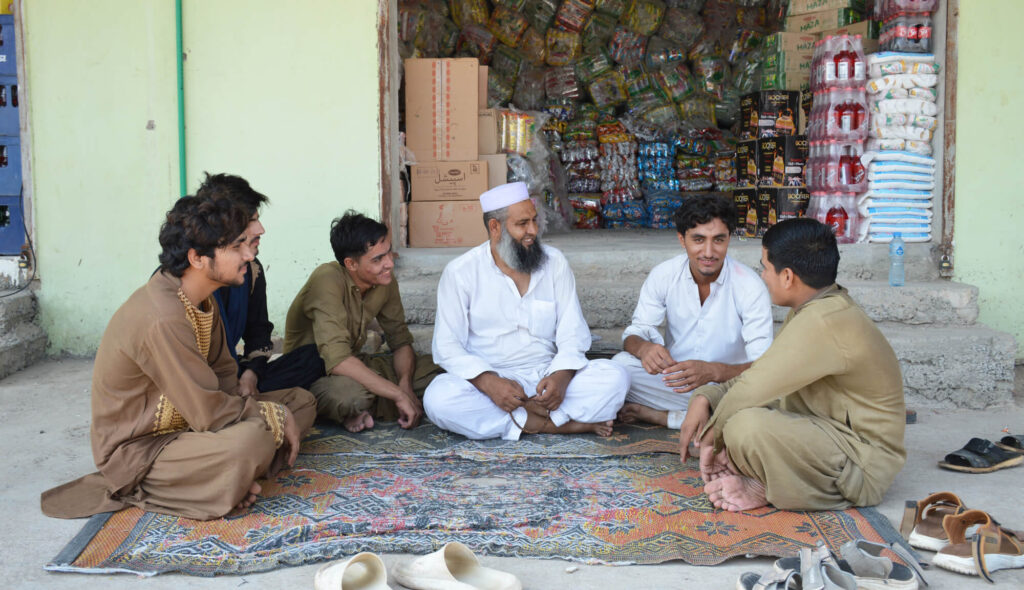In seven refugee villages in Pakistan, dozens of young people meet every week for two to three hours to practice their communication skills, set goals and plan meaningful community projects—from restoring a sports ground to distributing school bags to children. They are participants in International Medical Corps’ Youth Empowerment Programme.
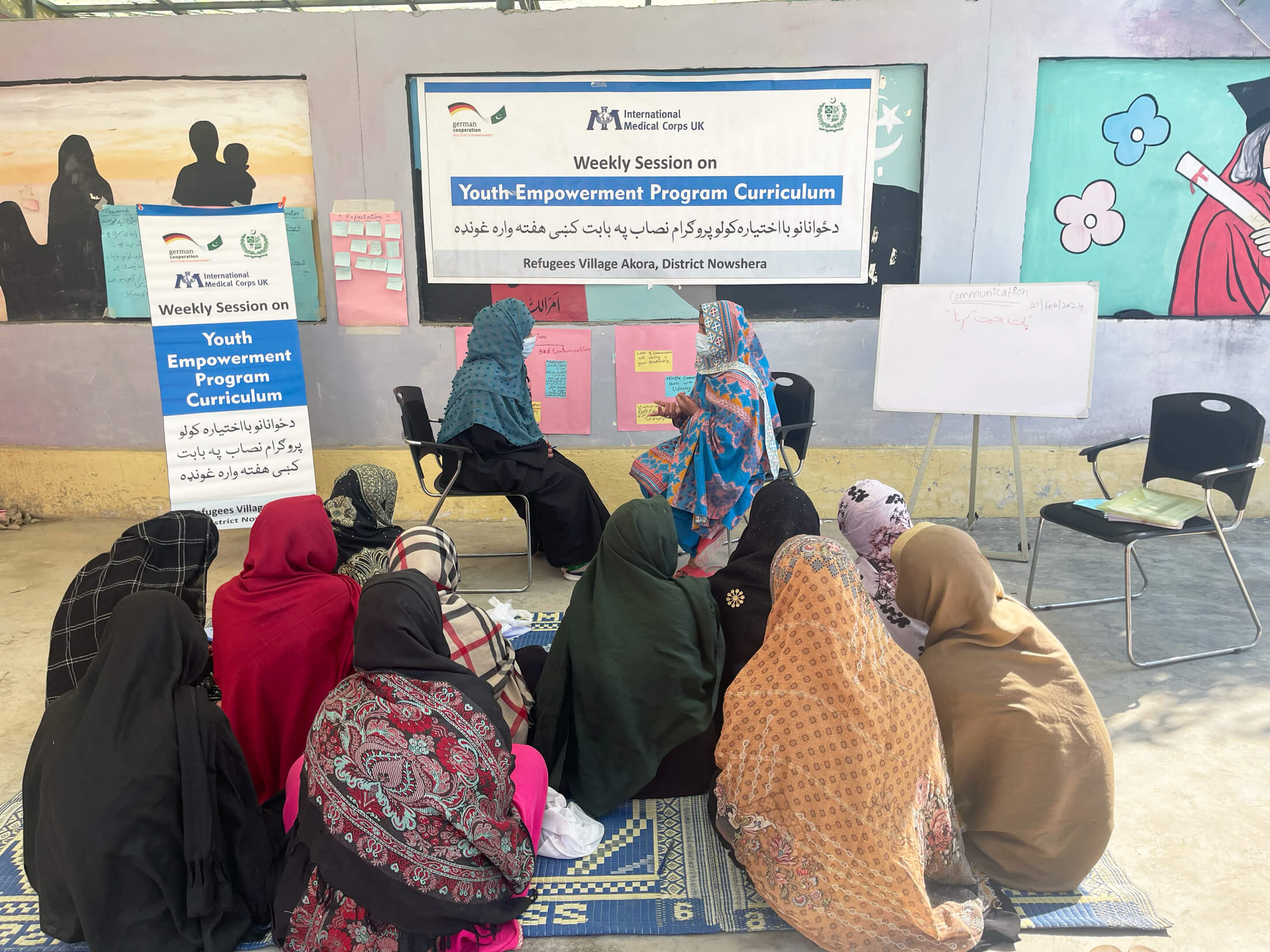
“The main objective of the programme is to empower young people to cope with life’s challenges, boost their confidence and self-esteem, strengthen their resilience, enhance social connections and enable positive contributions to their communities,” says Sundia Aman, Senior MHPSS Officer with International Medical Corps, who co-leads the project.
There are 16 groups—eight female and eight male. Each group has 10 to 15 young people—about half are Afghan refugees and the others are from the host community—who engage in a 16-week course where they cover a range of relevant topics.
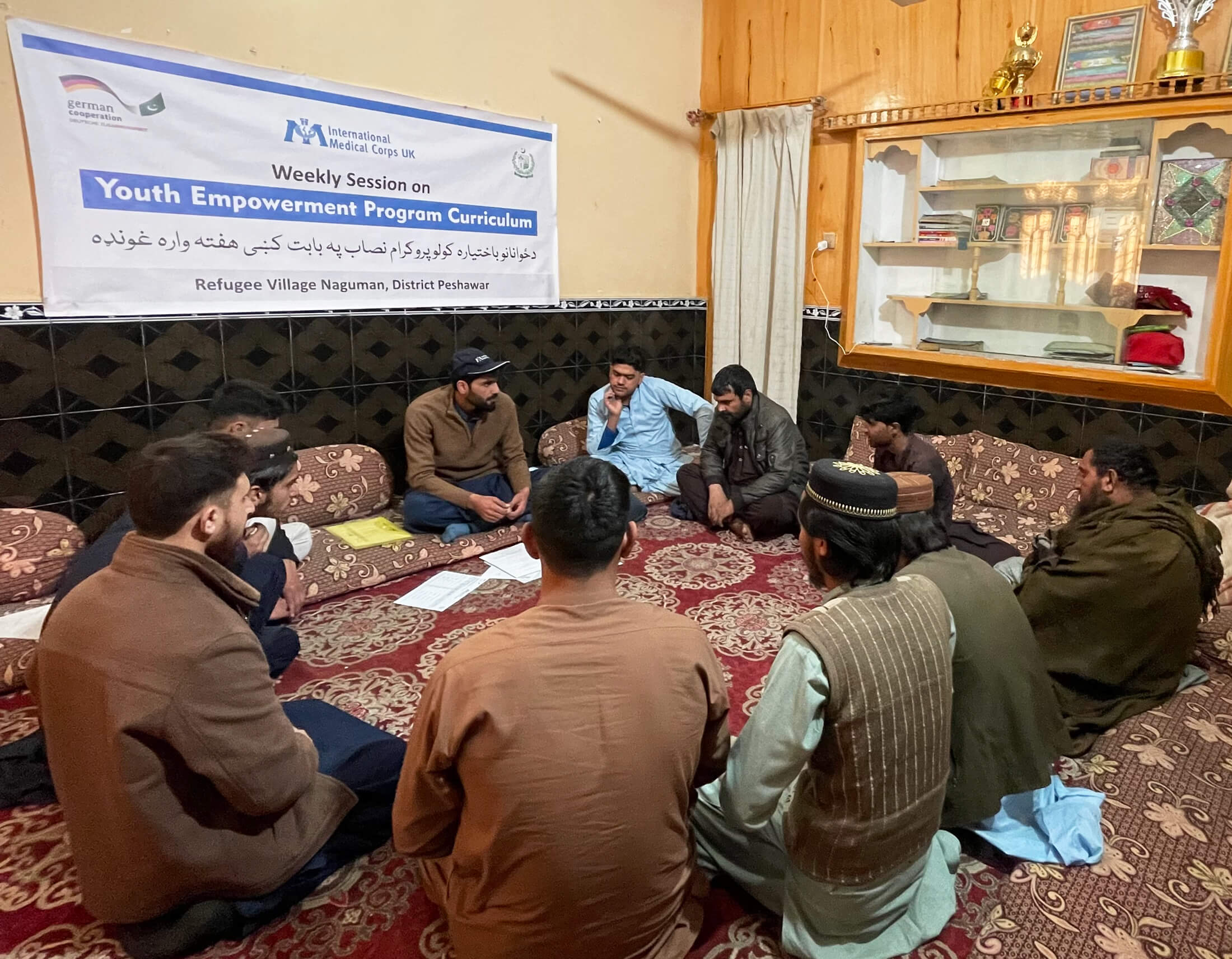
“Each week, there is a youth topic and a mental-health topic,” explains MHPSS Coordinator Rafiullah Khalil, who provides technical guidance and support. “The program includes group discussions and roleplaying exercises that help participants gain the confidence they need to express themselves and their ideas.”
Topics include building self-esteem, communicating with parents on complex issues, resolving conflicts, building effective communication skills, exploring the role of youth in the community, setting goals, exploring identity and role models, and managing stress.


The program culminates in a community service project. Each group submits a project idea to our staff, who then select the projects based on predetermined criteria and budget. Recent projects include installing streetlights and water tanks, which have benefitted thousands of residents. By working together, these projects build solidarity and cohesion among refugees and host communities.
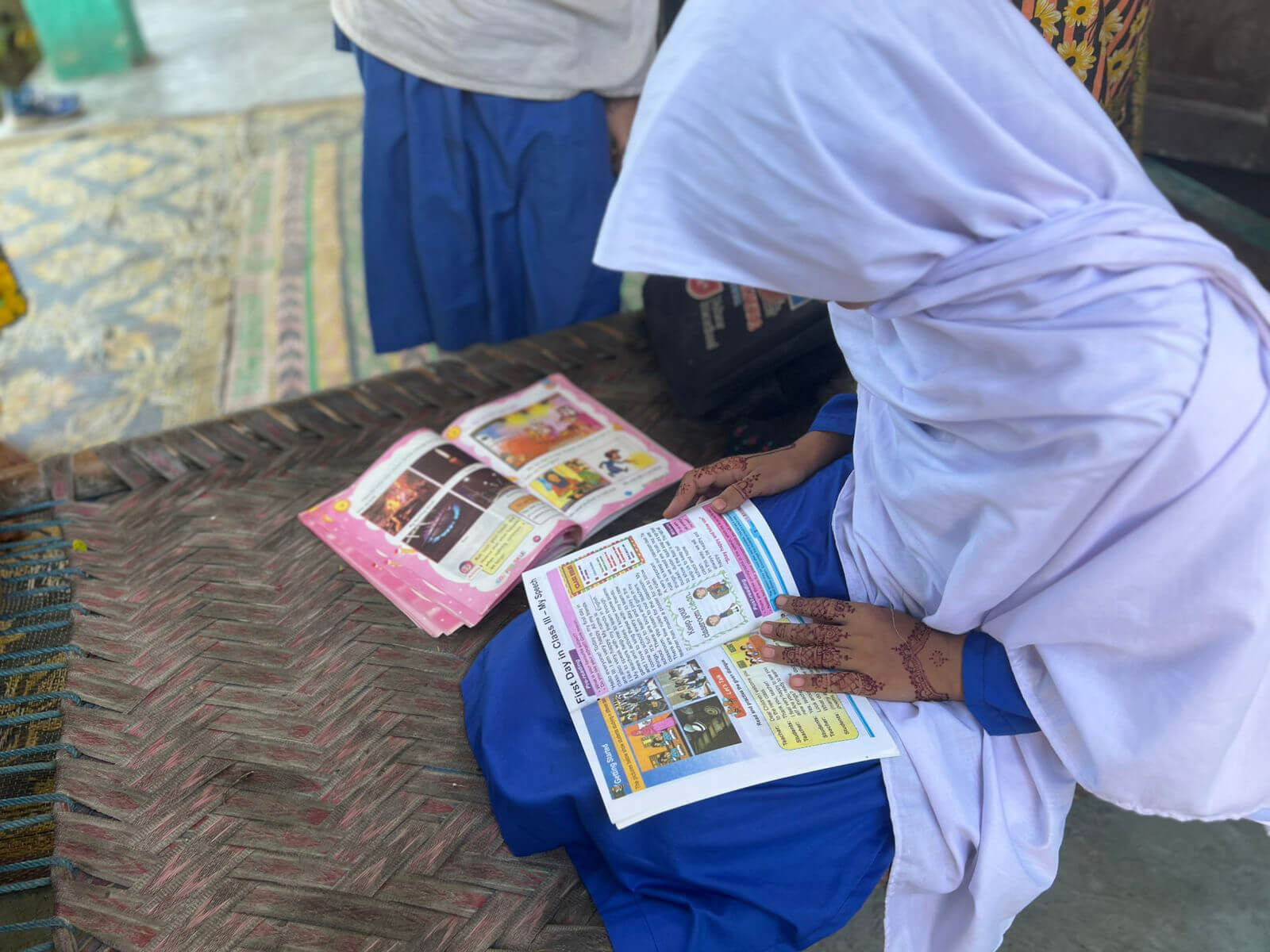
Rehana* is 19 years old. Though she completed primary school in the refugee camp, her brothers did not allow her to pursue further education at schools in the host community. At first, she felt too afraid to speak up for herself. However, with the confidence and strength she gained through our Youth Empowerment Program, Rehana successfully advocated for her education, convincing her brothers to support her academic goals.
Rehana encourages other girls in the refugee village to do the same. Inspired by her example, several girls who had previously dropped out of school have returned to their studies.
“I used to stay silent,” says Rehana. “But through the Youth Empowerment Programme, I found my voice. I convinced my brothers to support my education. Now I walk toward my future with confidence.”
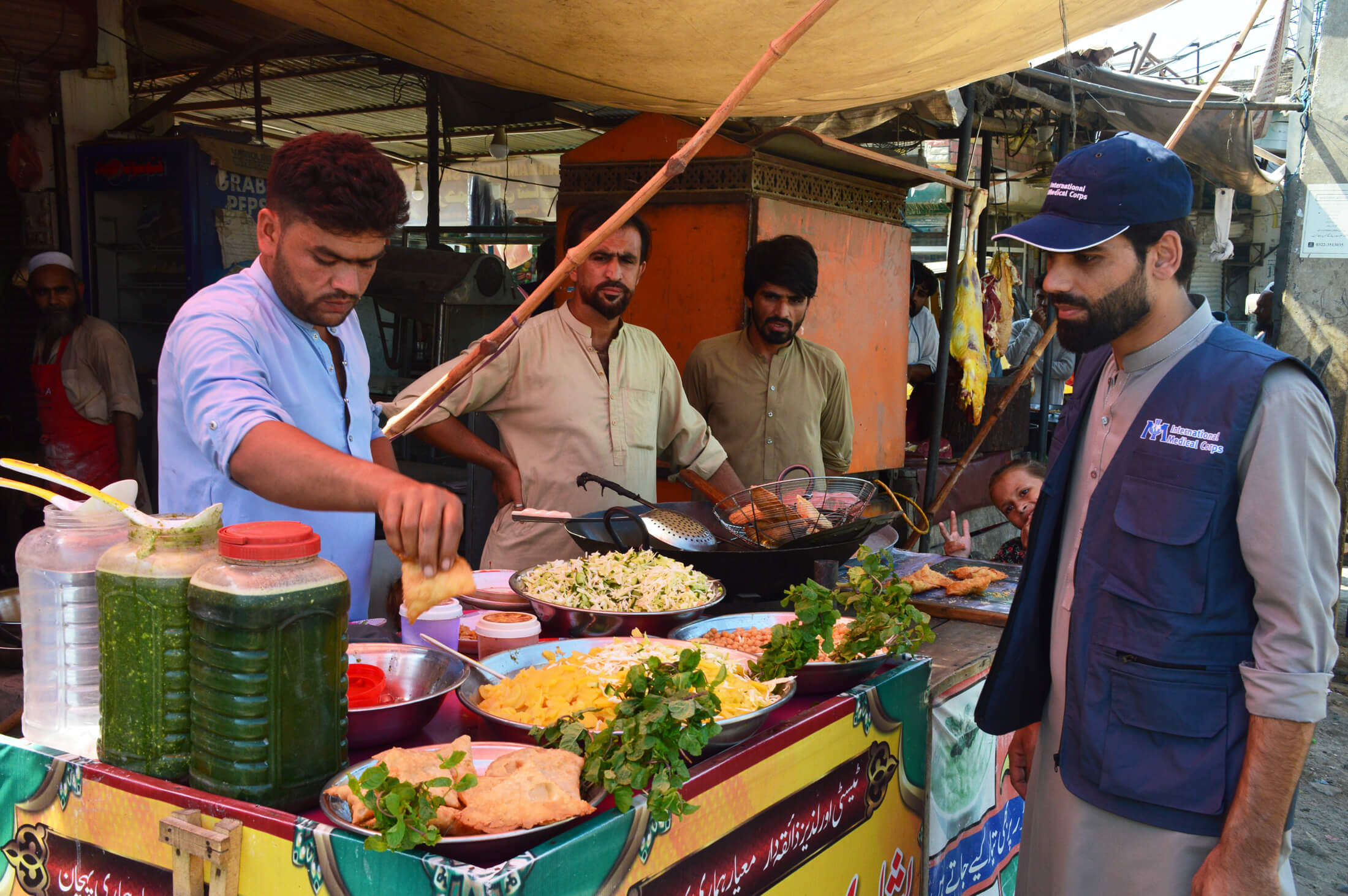
Zahid, 20, wanted to support his family and contribute to his community, but he struggled to express himself. Even when he had ideas, the fear of saying something wrong or being misunderstood kept him silent. Over time, his self-doubt grew stronger, and he worried he might never be able to do anything meaningful.
Things began to change when he joined the Youth Empowerment Programme. The discussions, group activities and supportive environment quickly encouraged him to speak up. At first, he only managed to say a few words, but with consistent encouragement from facilitators and support from his peers, he gradually found his confidence. He was especially inspired by sessions on setting goals and giving back.
After discussing it with his family, Zahid recently started a small business—a samosa chaat stall—fulfilling his long-held aspiration of becoming an entrepreneur. Alongside his business, he embraced a spirit of volunteerism. Now, he waters plants at local madrassas and schools, helps to maintain the community water-filtration system and supports other small initiatives to improve his neighbourhood. These efforts give him a deep sense of purpose and belonging.
“The Youth Empowerment Programme gave me the courage to believe in my voice and showed me the value of contributing to my community,” says Zahid. “Through volunteering, I discovered how even small efforts can bring change. Now, I encourage other young people to step forward, pursue their goals and give something meaningful back to the community we all share.”
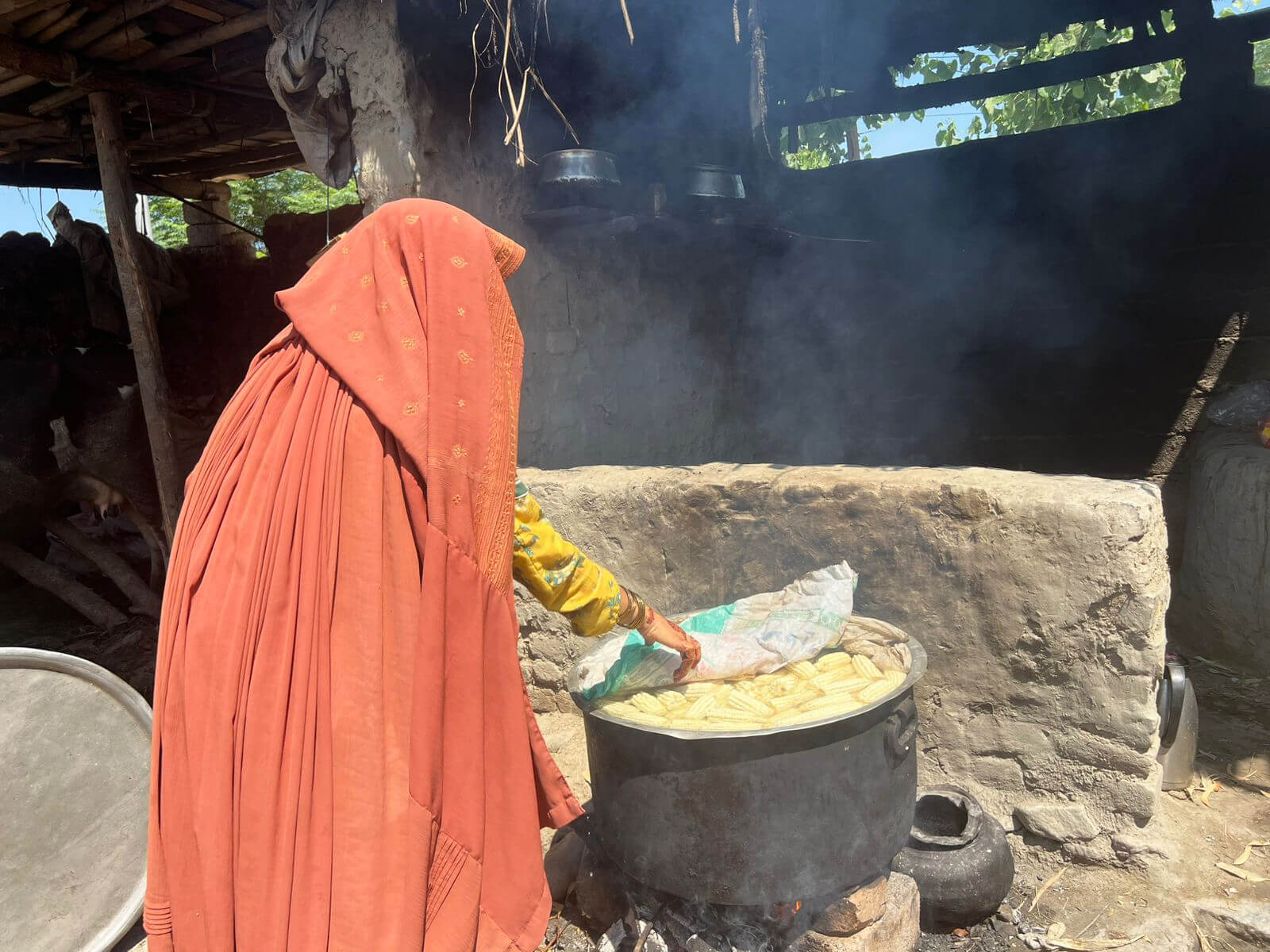
Zareen*, 24, wanted to contribute something meaningful to her family, but she lacked the courage and confidence to make it possible. Before attending the Youth Empowerment Programme, she was very shy. She was afraid to interact with people in the host community because she felt they looked down on her, which kept her isolated and hesitant to connect with others.
The programme sessions supported her personal growth and helped her find her voice. She began to speak openly with her family, convincing them that she could bring much-needed support to their household. With their agreement, she began baking corn at home, which her brother now sells on the street. This small income has given Zareen a deep sense of pride, showing her that she can contribute to her family’s well-being.
The programme also helped Zareen build bridges within the host community. Through interaction with other young people, she discovered that her fears were unfounded. She was welcomed, listened to and eventually developed friendships. Together, they even launched a small community project, further strengthening their bond. The project included the installation of a communal water tank in the refugee village to improve access to clean water, as the existing tanks were insufficient to meet the needs of the entire population. Today, Zareen no longer sees the host community as outsiders; she considers them family.
“The Youth Empowerment Programme gave me the courage to support my family and the confidence to connect with others,” says Zareen. “I now feel proud of what I contribute, and I’m inspired to work with refugee and host community youth for a better future.”
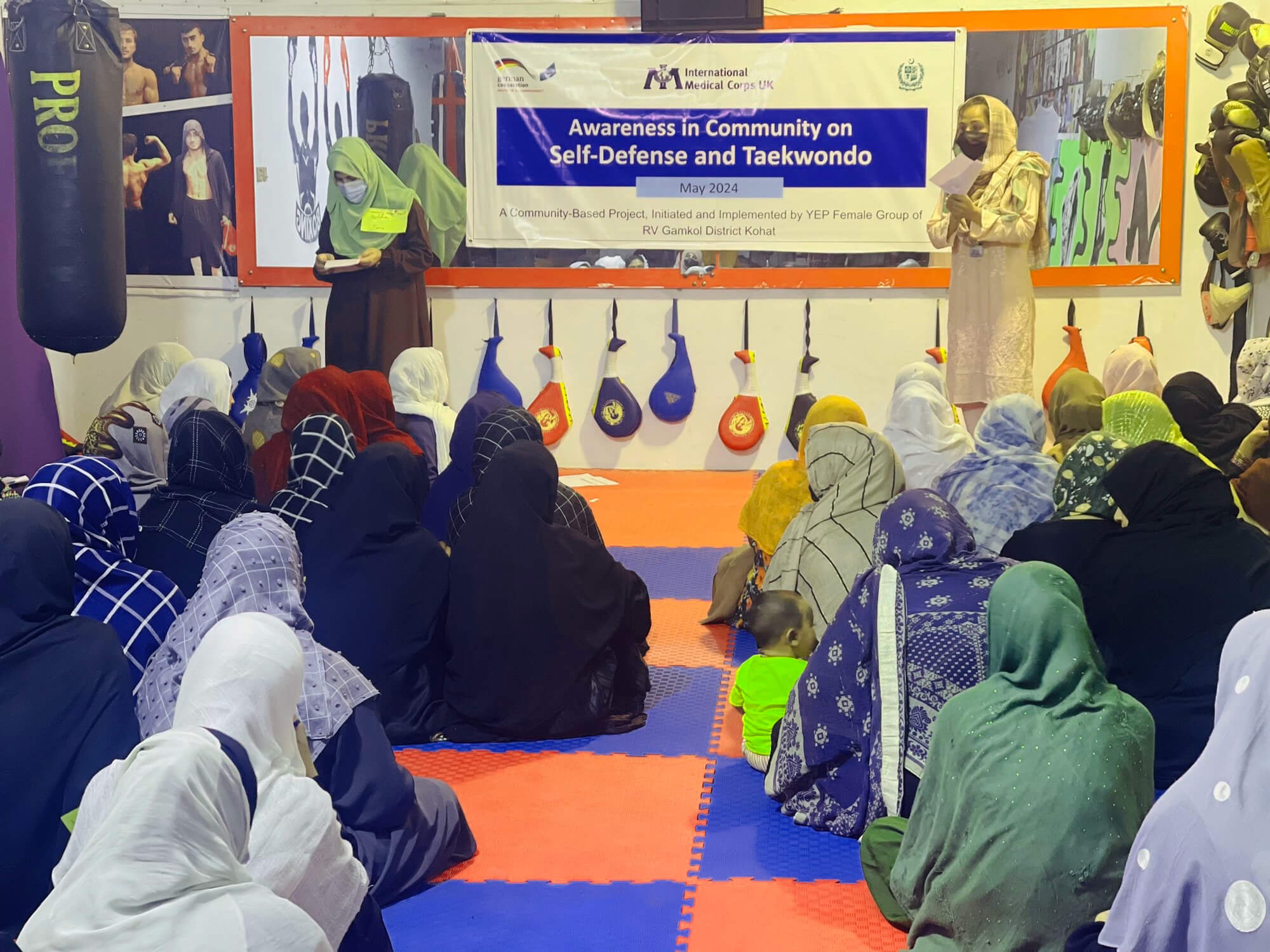
“Growing up in a remote community, I faced many of the barriers that hold girls back, including financial struggles and limited opportunities,” explains Fatima*, 21. “But deep inside, I knew I did not want to accept these limitations. When I joined the Youth Empowerment Programme, everything began to change. The weekly sessions were not just discussions, they were safe spaces where I could build confidence, develop leadership and express myself without fear for the first time.”
After completing the programme, Fatima organised the first-ever sports festival for girls and women in her community, creating a platform for girls to participate in sports freely and confidently.
Learn more about our work in Pakistan, where International Medical Corps has been providing lifesaving services since 1985.
*Names have been changed.
